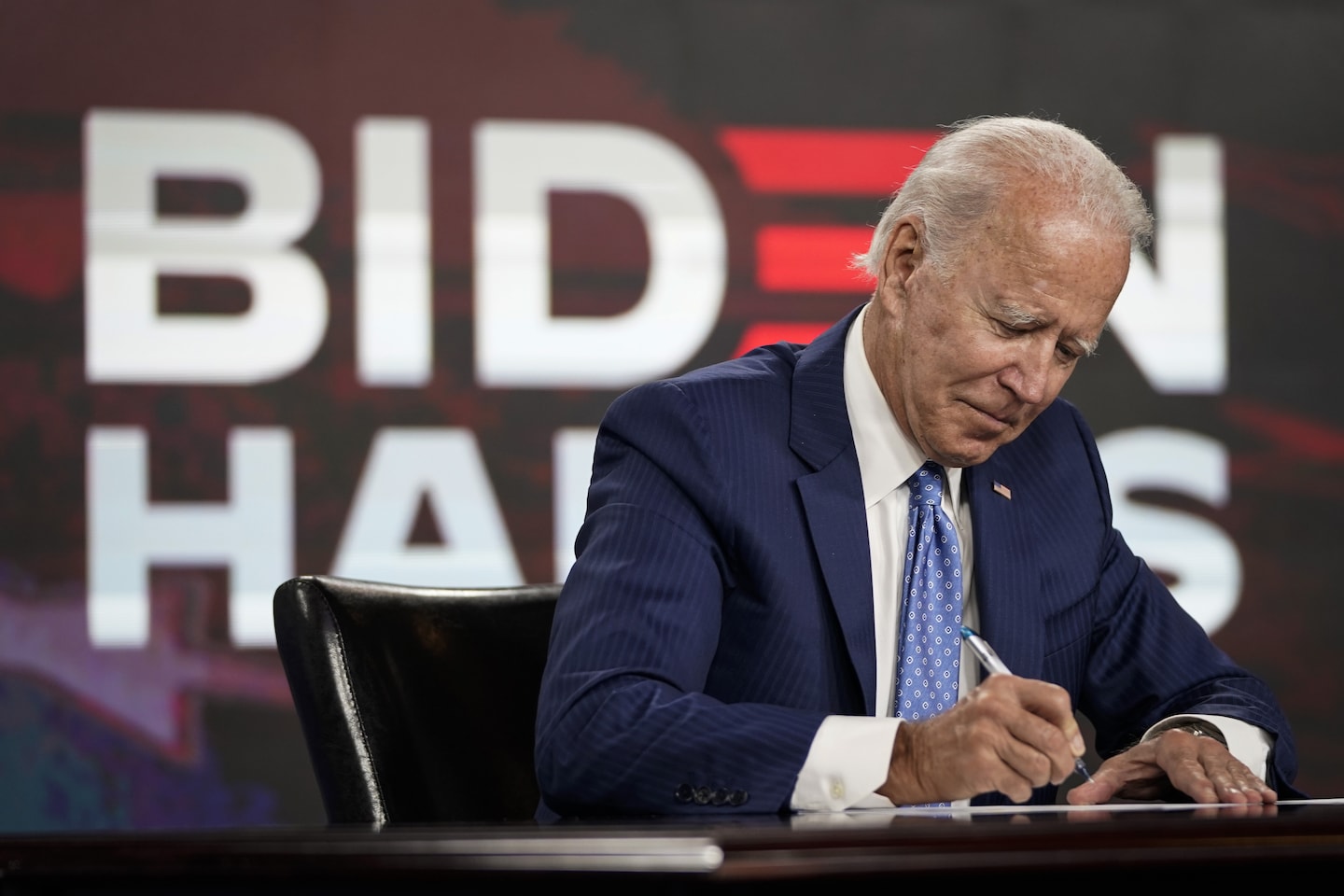The unconventional convention that could bend history

Their hopes are not fanciful. President Trump’s catastrophic fumbling in the face of a pandemic and economic collapse invites comparison to Hoover’s haplessness, even if the 31st president was as morally upright as the 45th is not.
Every second of the gathering will be an advertisement of Trump’s failure: the convention that could not meet because of the health crisis the incumbent could not manage.
And a New Deal-style commitment to active, fact-based, problem-solving government really does match the mood of a country that wants a virus conquered, jobs and incomes on the rise again and fairness enshrined in the economic system.
When Roosevelt broke with tradition by appearing in person at the 1932 Democratic National Convention in Chicago — a move he called, “unprecedented and unusual, but these are unprecedented and unusual times” — he gave a phrase to history: “I pledge you, I pledge myself, to a new deal for the American people.”
But he also spoke of “two ways of viewing the Government’s duty in matters affecting economic and social life.”
“The first,” he said, “sees to it that a favored few are helped and hopes that some of their prosperity will leak through, sift through, to labor, to the farmer, to the small business man. That theory belongs to the party of Toryism, and I had hoped that most of the Tories left this country in 1776. But it is not and never will be the theory of the Democratic Party.”
It’s not hard to imagine Joe Biden or Kamala Harris saying the same. And it would be one of those tricks history sometimes plays if Biden, whose national career began the year the original New Deal coalition collapsed for good, were to reinaugurate a New Deal-inspired approach to politics.
The old alliance was shattered in 1972 when Richard Nixon crushed Democrat George McGovern in a landslide that encompassed Biden’s Delaware, where Nixon won by 20 points. In an early sign of his political savvy, a 29-year-old Biden — he turned the constitutionally required age of 30 after the election — battled the Nixon tide to upset an incumbent Republican and launch a 36-year Senate career.
If the 2020 Democratic Party is different from its 1972 version, the contrast with Roosevelt’s party in 1932 is even more stark.
In Roosevelt’s day, Southern Democrats openly advocated white supremacy and could not have imagined being part of a party that would make Barack Obama the first Black president. It would have astonished the crowd at Roosevelt’s convention that Biden’s selection of a Black woman, the daughter of Indian and Jamaican immigrants, would be widely viewed as the obvious, safest choice for a running mate.
The Democrats’ move from being the party of segregation to the party of inclusion was the product of a long struggle and remains a source of pride. But the ensuing backlash that began in the late 1960s undid the New Deal alliance, moving most of the states of the old Confederacy and a fair share of former Democratic voters elsewhere into the GOP column. Nixon’s victory over McGovern was, in part, the fruit of his Southern Strategy, which has morphed under Trump into outright racism.
Voters will be rendering a judgment on that history this year, but they are also being called upon to ratify Roosevelt’s own contribution to the politics of inclusion. Timid on race, Roosevelt rejected nativism and built an alliance with Northern working-class immigrants — among them Italians, Eastern European Jews, Poles and the Irish. He reminded old stock White Americans (like himself) that they, too, were “descended from immigrants and revolutionists.”
Thus, if Biden’s choice of Harris reaffirms his party’s more recent embrace of racial equality, it is also a latter-day version of Roosevelt’s bet: that a new generation of immigrants — this time from Asia and the Caribbean, from Latin America and Africa — would, in alliance with other Americans fed up with incompetence and divisiveness, drive a transformation of our politics.
Much of the week’s speechmaking will focus on the calamity that is Trump’s presidency. But the historic task of this “unprecedented and unusual” convention is clear: To help Biden prove that a 21st-century New Deal alignment can be assembled from more diverse building blocks by embracing both racial and economic justice.
Read more:






